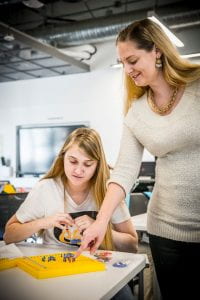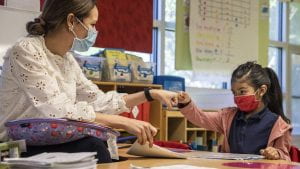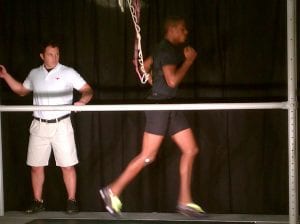 To combat classroom learning losses stemming from the pandemic, five SMU Simmons professors reflect on their own research to advise Pre-K-12 school leaders on how to build up students’ knowledge.
To combat classroom learning losses stemming from the pandemic, five SMU Simmons professors reflect on their own research to advise Pre-K-12 school leaders on how to build up students’ knowledge.
Drs. Jill Allor, Diane Gifford, Leanne Ketterlin Geller, Candace Walkington, and Annie Wilhelm jump in with ideas published in Dallas Innovate.
Reading experts Allor and Gifford emphasize basic skills. As Gifford says, “Students should learn the foundational skills necessary to read by the end of second grade. When students have gaps in their learning, they are likely to struggle until those gaps are filled. Even before COVID-19, 65 percent of fourth-graders in 2019 were reading below grade level.”
Allor says phonics is essential for reading comprehension. “Children who have difficulty reading most often have trouble with the ability to understand how letters relate to sounds,” she says. “Research shows that students who struggle most often need more systematic and explicit phonics instruction. Some very popular reading programs are not consistent with research. If schools use these programs for intervention, many students will continue to struggle.”
Math researcher Leanne Ketterlin Geller believes math requires more dedicated time. “If students miss a concept—addition, for example—it will hinder them from understanding concepts they’ll learn later, like multiplication,” she says. “Students will need more math instruction than the standard time allotment if they are to catch up.”
Annie Wilhelm adds that it is time to teach math in a new way, “The current model of teaching math as a series of disjointed topics limits students’ development of conceptual understanding. Instead of being taught a new set of procedures to master, students need to wrestle with how new ideas might fit with things they already understand.”
Using technology helps appeal to students’ personal interests, and that is important, says Candace Walkington. “Research shows that the most effective math instruction is relevant to students’ lives and interests and based in real-world problems.”In-person teaching can use technology to re-ignite students’ interest by using augmented reality, virtual reality, artificial intelligence, and game-based learning to simulate real life in math problems”









